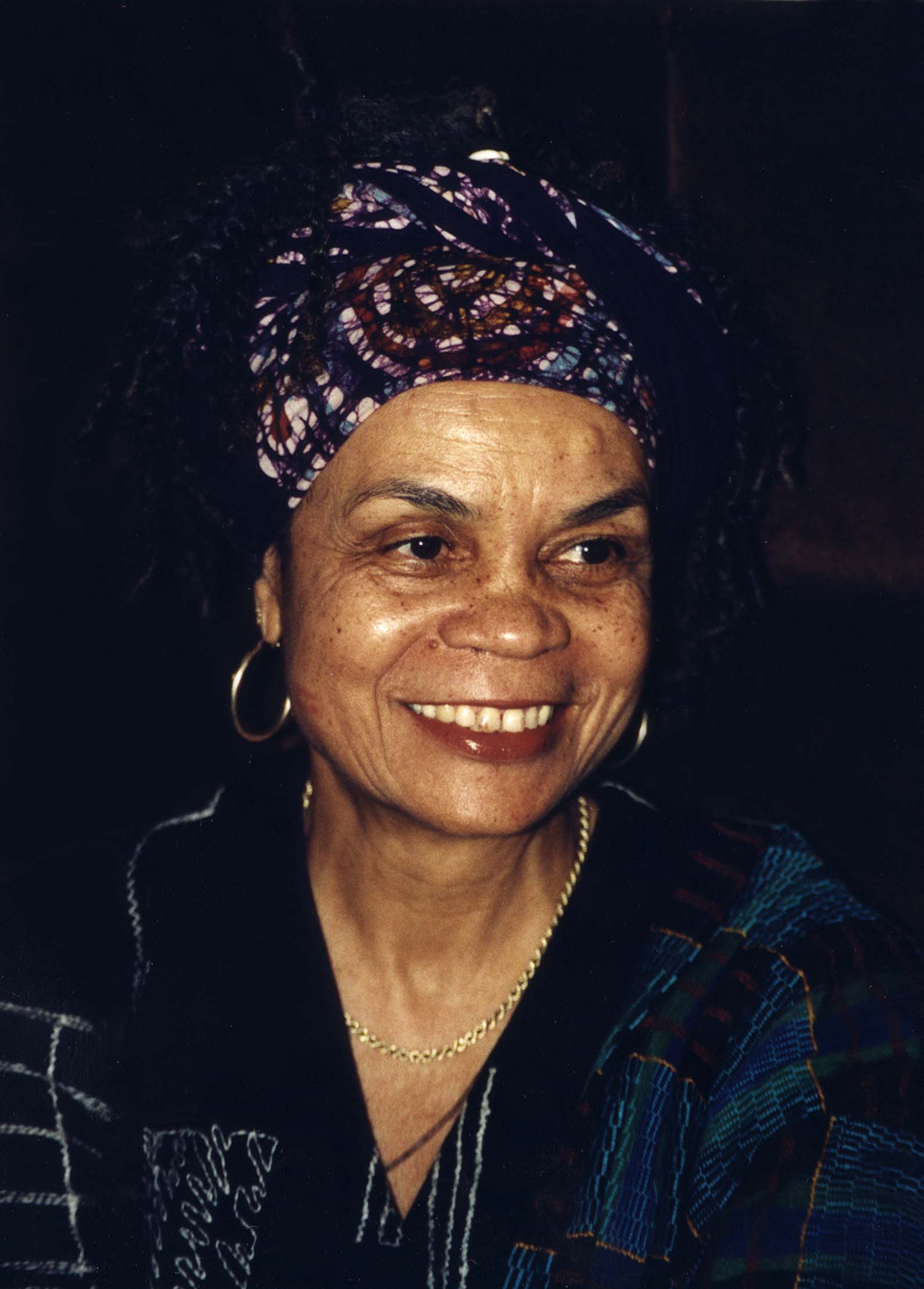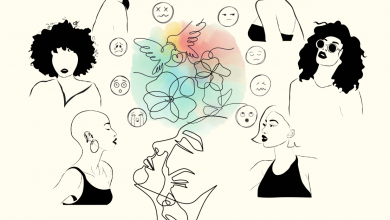Feminist Theorist Thursdays: Sonia Sanchez

Image description: A photograph of Sanchez in 1998.
Sonia Sanchez, born Sept. 4, 1934 in Birmingham, Alabama, is a teacher, poet, playwright, and activist. She has written over 20 books and has numerous accolades, the latest being the Ruth Lilith Poetry Prize, which honors living United States poets for lifetime accomplishments and is recognized by the Poetry Foundation as the most prestigious award given to American poets. Sanchez credits her love of poetry to growing up with her paternal grandmother until the age of six and noticing her vocal patterns and inflections. Sanchez’s grandmother passing when she was young led for her to develop a stutter, lasting until she was a late teen, that greatly influences her work and is a common characteristic in her pieces.
After receiving her undergraduate Political Science degree from Hunters University in 1955, Sanchez continued her education at New York University. Professor Sanchez got her start publishing poetry in a New York University classroom under the supervision and teaching of Louise Bogan, an influential poet in her own right and former editor of poetry for The New Yorker. It was in this classroom that Sonia learned the power of her writing as she saw the way it evoked emotional responses from her classmates when she did readings.
During her younger years Sanchez was a part of New York CORE (Congress of Racial Equality), where she developed her activism through poetry and prose.
She was a prevalent leader in the Black Arts Movement, also known as the Black Aesthetics Movement, established in Harlem, New York, in 1965 as a response to the assassination of Malcom X. Throughout the late ‘60s and early ‘70s she was one of few women within the collective known as Malcolm’s Children. With raw, angry, and powerful poems, Sanchez shocked and awed many as her short stature and feminine presentation went against cultural norms of womanhood of the ‘60s. She challenged gender roles and representation through radical poetry and spoken word.
The poetry of the Black Arts Movement and by Sanchez are some of the first recorded accounts of spoken word poetry in the United States.
During her time in New York, Sanchez discovered the Schomburg, which served as a resource library for Black authors at the time, that led her to be exposed to Black liberation writers who came before her like W. E. B. Du Bois, Marcus Garvey, Langston Hughes, and Zora Neale Hurston. In a documentary about her life, Sanchez remembers questioning: “How could I have been an educated woman and not have read these writers?” Her discovery of Black authors and urban sound allowed her to develop a passion for teaching African literature and studies. Sanchez was a part of the Black Studies movement at San Francisco State University,where students advocated for African American studies to be an accredited study of the college. Sanchez’s classes held at SFSU are considered some of the first Black Studies courses in America.
Sanchez’s feminism led her to be outspoken in many of the movements that she was a part of. She publicly criticized the Black Panther Party, of which she was a member, and their mistreatment of women and casting aside of women in the movement.
Through her poetry in the ‘60s, Professor Sanchez led charges against stereotypical views of Black women that sit behind Black men and are domestic by producing fiery performances filled with language and beliefs deemed unfeminine. When asked in an interview why she chose to write, Sanchez responded “I wanted to tell people how I became this woman with razor blades between her teeth.”
Professor Sanchez’s work focuses on the ugliness of American society, Blackness, womanhood, femininity, sex, social progression, and peace. Through her work’s focus on the intersectionality of race, class, and gender, Sanchez is also known as a pionneer of the Black feminist movement. Professor Sanchez frequently highlights the power of words in interviews and tedTalks as she once put, “Words, these words we said, these songs we sang… those vibrations change people.”
Sanchez also describes the autobiographical nature of her pieces as a collective “I” signifying all women who share similar experiences. As she writes in her poem “Poem at Thirty,” where she describes a wounded women who becomes stronger over time:
i want to tell
you about me
about nights on a
brown couch when
i wrapped my
bones in lint and
refused to move.
no one touches
me anymore.
father do not
send me out
among strangers.
you you black man
stretching scraping
the mold from your body.
here is my hand.
i am not afraid
of the night.
While Sanchez writes “I” regarding herself, she also is a vessel which other women may see themselves in the role of “I.”
Sanchez also focuses on the radical nature of love and care. In her poem “This Is Not A Small Voice” she highlights the way that love is a pillar on which community and Black liberation is achieved. As she writes:
This is not a small love
you hear this is a large
love, a passion for kissing learning
on its face.
This is a love that crowns the feet
with hands
that nourishes, conceives, feels the
water sails
mends the children,
folds them inside our history
where they
toast more than the flesh
where they suck the bones of the
alphabet
and spit out closed vowels.
This is a love colored with iron
and lace.
This is a love initialed Black
Genius.
Professor Sanchez regards herself as “a woman who would never shut up” which got her in a lot of trouble (significantly with multiple colleges and universities throughout America, with the FBI, and with the Black Panther Party) but also allowed her to be the activist we know today.
Now at 88 years old, Sanchez is still active in advocating for equity and rights for all through activism in current social movements and performances of her radical poetry to students and adults alike. Sanchez is still living as a woman with razor blades between her teeth who uses language to cut out injustice in America.




